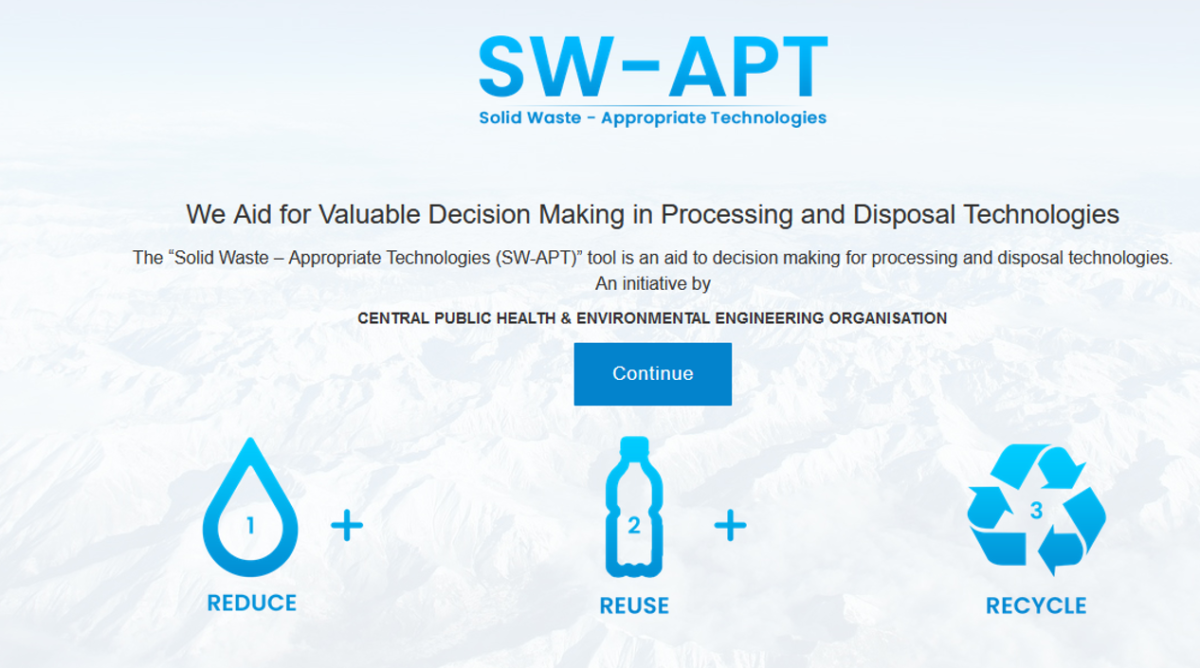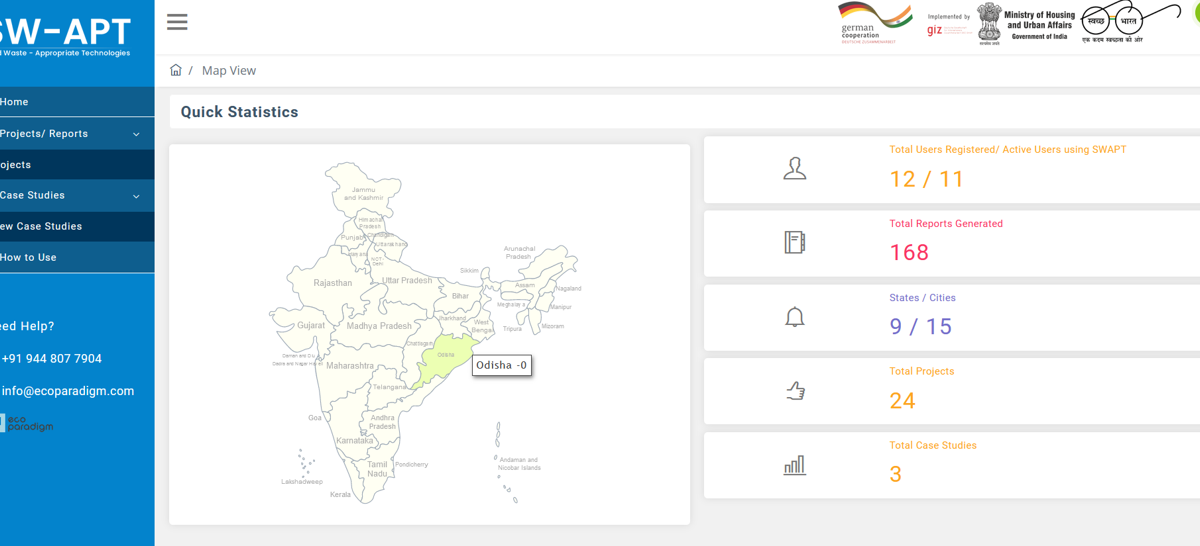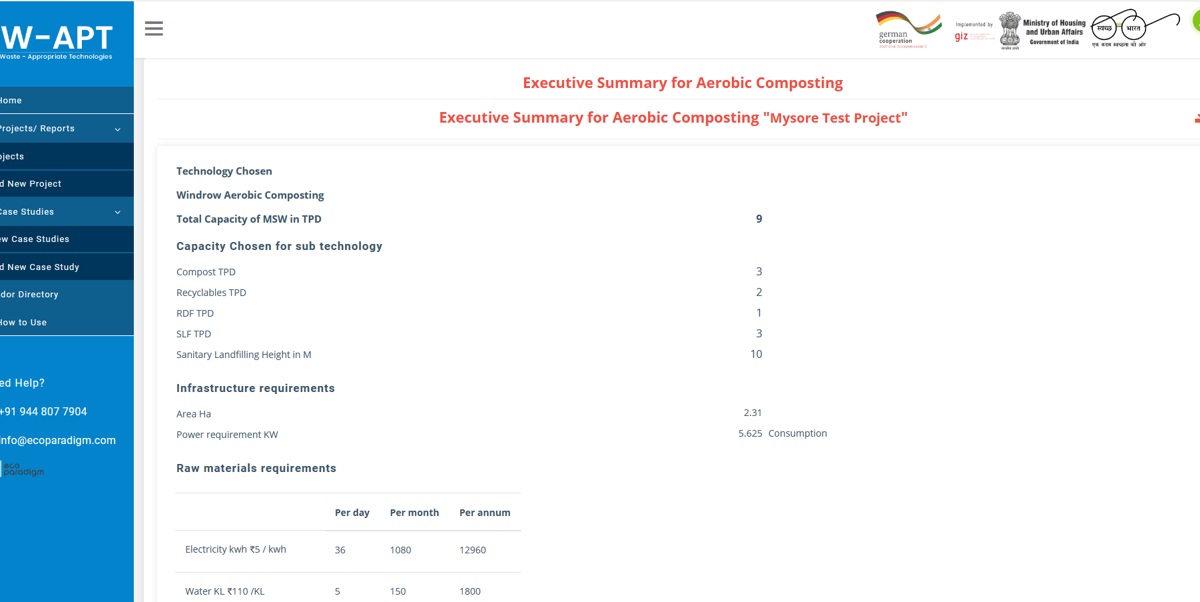As the result of rapid urban dynamics, urban waste management in India remains a challenge. Since this phenomenon demands a customized solution for the up-to-date situation, government in India seeks for a support to have a better access to the updated waste management solution. Solid Waste – Appropriate Technologies (SW-APT) that were proposed to support as decision making tool needed to be improved for more interactive details, e.g. its robustness, technical and financial information of the provided solution, and knowledge exchange.
As the further consideration, development of SW-APT new version should be in line with project from the government to implement low carbon measures and institutionalize government capacities in climate change. As the part of SW-APT improvements, introducing a real-time database for the required information (technical and financial aspect) provides suitable technology alternatives. In addition, a feedback structure for the technologies effectiveness after installation is essential as the base of the knowledge share. In terms of the financial aspect, a correlation between resource savings and CO2 mitigation should be elaborated. The best available techniques (BATs) and the added criteria are essential to the extent of platform for information exchange among the urban local bodies (ULBs). At the end, the platform will support a learning process by the ULBs and an asset to a long-term approach in MSW management.





